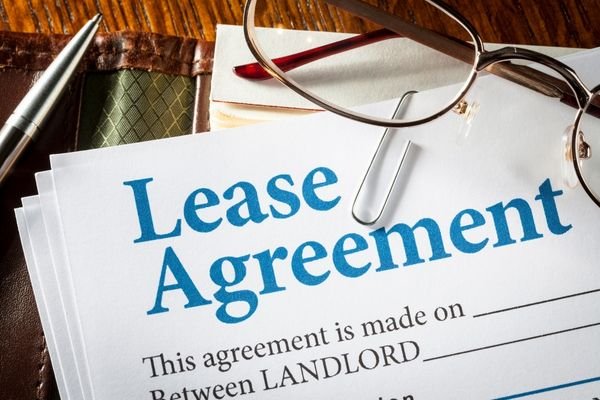Insights
Nash & Co Solicitors is recognised for understanding our clients’ business and personal matters, in-depth knowledge, experience, and cost-effective representation. Our Insights draw on the experience and expertise of our lawyers and experts.
All Categories
- Accidents at Work
- Armed Forces Injuries
- Asset and Debt Recovery
- Best Interests Meetings
- Brain and Spinal Injuries
- Cancer Treament
- Careers
- Children
- Cohabitation
- Commercial
- Commercial Property
- Corporate
- Cycling Accident
- Dementia
- Dispute Resolution
- Divorce
- Domestic Violence
- Elderly Law
- Employment
- Estate Planning
- Family
- Grandparents
- High Value Property
- Inheritance Disputes
- Inheritance Tax
- International Women's Day
- Lasting Power of Attorney
- Medical Negligence
- Mental Capacity
- Motorbike Accidents
- National Conveyancing Week
- News
- Notary
- Notary Services
- Personal Employment
- Personal Injury
- Probate
- Property Disputes
- Residential Property
- Road Accident
- Slips trips and falls
- Sodium Valproate
- Trusts
- Wills
- Wills Trusts Tax and Probate
- Workplace Accident
Month
- April 2024
- March 2024
- February 2024
- January 2024
- December 2023
- November 2023
- October 2023
- September 2023
- August 2023
- July 2023
- June 2023
- April 2023
- March 2023
- January 2023
- November 2022
- June 2022
- May 2022
- March 2022
- February 2022
- January 2022
- December 2021
- November 2021
- October 2021
- September 2021
- July 2021
- June 2021
- May 2021
- April 2021
- March 2021
- February 2021
- January 2021
- October 2020
- September 2020
- August 2020
- July 2020
- June 2020
- April 2020
- March 2020
- February 2020
- November 2019
- August 2019
- June 2019
- February 2019
Signing A Lease: Elves' Commercial Property Adventure
Buddy and Chip needed to find the perfect location for their business venture, somewhere they could house their workshop. They found just what they were looking for, a place to craft toys and spread holiday joy. It was time to sign the commercial lease.
Minimum Energy Efficiency Standards (MEES) are changing.
Currently, to let a commercial property, the rating must be an EPC E or above. This has been the case since 1 April 2018 as the PRS Regulations 2015 made it unlawful for Landlords to grant a new tenancy of a property with an EPC below E in scope with the Minimum Energy Efficiency Standards (hereinafter called ‘MEES’). That is, unless an exemption applies and has been validly registered.
Service of Notices – a case comment
A recent Court of Appeal decision has highlighted how strictly the courts can view compliance with contractual and statutory conditions when serving notices.
The law surrounding Forfeiture in commercial tenancies
As the Pandemic continues to evolve, so does the law surrounding commercial tenancies. As you already know, there’s a lot of uncertainty throughout the country. But one thing commercial tenants can be certain of is that a landlord’s right to exercise their right of re-entry (forfeiture) for non-payment of rent is suspended until 31 December 2020.
The Right to Regenerate – bringing unused land back to life
The Government has launched a consultation on more effective ways to bring unused or underused public land in England back into use. The consultation is called ‘Right to Regenerate’. What is it and how could this change things?
Planning Use Classes have changed
The Government have recently made important changes to Planning Use Classes. These changes came into effect on 1st September 2020, (although there will be a transition period until 31 July 2021). The measures have been introduced to make it easier to repurpose premises quicker and at less cost. This means that ‘the high street’ can be more adaptable to meet occupier demand and safeguard community assets.
Turnover Rent – is it the way forward?
The financial implications for our retail sector and commercial landlords arising from the Covid-19 pandemic are by this point obvious. Governmental restrictions, and reduced consumer confidence will leave highstreets and restaurants struggling for some time to come. Switching to a turnover rent is another option that could help tenants and landlords alike.
Commercial Property – the Code of Practice
On 19 June 2020 the Government published the Code of Practice for commercial property relationships during the COVID-19 pandemic. The Code is voluntary rather than mandatory. It’s objective is to provide a level of support to all those stakeholders in the commercial property sector. This ranges from customers and occupiers, through to the landlords and lenders.
Commercial leases & COVID-19
Landlords and tenants are facing a number of challenging issues around commercial leases, as a result of the COVID-19 pandemic. Perhaps the most central issue is that of payment of rent. For tenants, this typically represents one of the largest costs to their business. For landlords, a clear rental income is their business.
Coronavirus Act 2020 – Commercial Tenancies
As the Coronavirus pandemic continues, many businesses are starting to feel the strain. In particular, commercial tenants may find themselves in a position where they are unable to afford their rent. What is classed as “rent” will be defined within the lease.
I want to rent out my commercial property on an easy-in easy-out basis. Do I really need a formal lease document?
On 19 June 2020 the Government published the Code of Practice for commercial property relationships during the COVID-19 pandemic. The Code is voluntary rather than mandatory. It’s objective is to provide a level of support to all those stakeholders in the commercial property sector. This ranges from customers and occupiers, through to the landlords and lenders.
Overage: Beware of the Trigger
Overage provisions take many different forms to accommodate a variety of scenarios. The common theme among all though is they cover the situation where the parties to a property transaction agree that the circumstances justify the seller being entitled to further payments in relation to the property being sold, at some point in the future. The parties are free to set the terms of the overage provisions which will often be shaped by current market conditions and the respective bargaining strengths of the parties involved.












